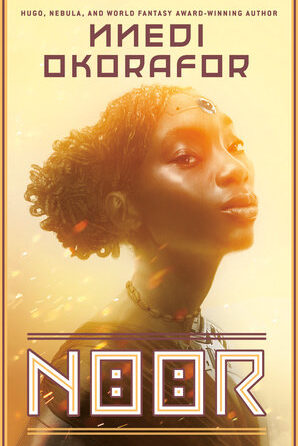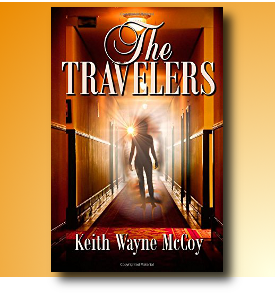 I’ve been told that alternate history is a “high-concept” genre because it allows for narratives that are created by asking the question: what if? In a high-concept story, that single question sparks a chain of events that turns normal quickly into the extraordinary. With that mind, I can’t think of a story that is more high-concept right now than The Power by Naomi Alderman.
I’ve been told that alternate history is a “high-concept” genre because it allows for narratives that are created by asking the question: what if? In a high-concept story, that single question sparks a chain of events that turns normal quickly into the extraordinary. With that mind, I can’t think of a story that is more high-concept right now than The Power by Naomi Alderman.
The Power is set in a world much like our own, except one day teenage girls suddenly gain the power to release electricity from their hands (thereafter known as the Day of the Girls). The young girls are also able to awaken this talent in older women, implying that this was an ability that women may have had before, but it was lost long ago. Nevertheless, its back now and suddenly the gender dynamic is switched, with women now being physically stronger then men.
As one can expect, the world doesn’t take it well. Young girls are thrown out of their homes or burned as witches. Violent rebellions begin in countries like Saudi Arabia or in other places known for oppressing women. Governments aren’t sure what to do and quickly begin to panic when it becomes clear that there isn’t a “cure” forthcoming. Men’s rights activists (I laugh every time I need to say or type that) turn violent, while women experiment with their newfound power to see just how far they can take it.
The history of this new world is primarily told from the perspective of four main characters: Roxy (the daughter of a British mobster whose power is awoken on the day she witnesses her mother’s murder), Tunde (a young Nigerian man who becomes famous when he uploads a video of a woman using her power to attack a man who has been sexually harassing her), Margot (the mayor of a New England city whose daughter awakens the power within her) and Allie (a young mixed-race Southern girl who hears a voice in her head motivating her to change the world). From their eyes we see the dynamic of human civilization change and the conflict that arises when those who don’t want to lose power throw out all the stops to keep it.
There is also a framing story at the start and end of The Power set thousands of years after the events of the book told through a series of letters between a male author who is attempting to shine light on the events following the Day of the Girls and a female author who is giving him advice (who may actually be a future version of Alderman, but whatever). Their correspondence was a clever way to introduce and conclude the story, but its the middle part which concerns us most in this review.
Now I know I likened The Power to alternate history, but that is only half-right. Alderman obviously doesn’t change the past as we know it since the setting can easily be our contemporary times, but it still reminds me a lot of those stories that use alien space bats to get the plot started. Sort of like how SM Stirling shut off technology in the Emberverse books or John Birmingham wiped out America in Without Warning. The good ASB stories, in my humble opinion, are the ones that start off with a supernatural divergence, but the story that comes after it strives to be as plausible as possible.
I think Alderman did a good job keeping her story plausible. Things don’t change overnight for women and even violent uprisings led by women often lead to political upheaval or civil war later. I found it amusing (in a sort of black humor way) how in our world male violence against women in school is brushed off by society as “What are you going to do?” or “Not all men are like that”, but give women the power to fight back and suddenly its: “That’s it! Each gender needs to go to their own school pronto!” And you know what? I find that scenario to be entirely believable. If history tells us anything, the majority always tends to resort to extreme measures as soon as someone in the minority starts to resist.
I also liked how Alderman did her best to be fair to both genders. There are good men and women in this world, but there are a lot of bad ones as well. Young men become radicalized on the Internet to hate women, while many women learn how they can take advantage of men sexually using their power. A scene featuring women soldiers attacking a refugee camp in Moldova was…pretty brutal, but that is to be expected. The Power is very much a dystopia and there are very few happy endings in those stories. Plus if dystopias teach us anything its that power corrupts even those with the best intentions.
Granted The Power isn’t perfect. It is slow in the beginning and there are a few scenes where even I thought the plausibility scale was dropping too far into the “yeah right” category, but overall this was still an excellent read. The twist at the end involving Allie also caught me off-guard…and left me disturbed in a way I haven’t felt since reading The Perks of Being a Wallflower.
Naomi Alderman has shown that she really knows what to do with a “what if” question and if you like seeing the world broken to pieces in a fresh way, then I can recommend The Power.










Recent Comments